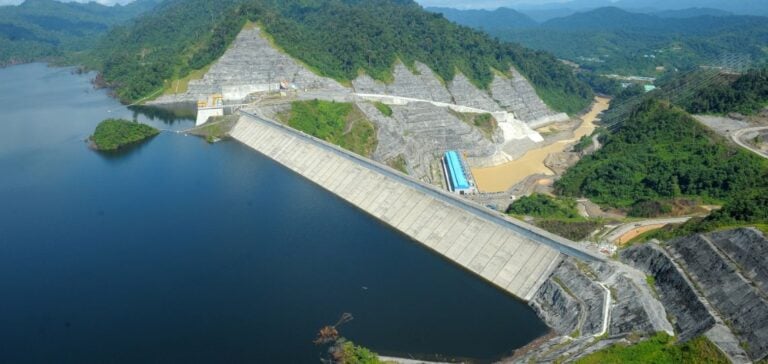Power Construction Corporation of China (PowerChina) highlighted its operations in Malaysia on June 5 in conjunction with World Environment Day, emphasising its strategy to develop energy infrastructure focused on renewable sources. Since entering the Malaysian market in 1998, the company has signed more than 180 contracts, including several major hydropower projects now completed.
Projects contributing to local economic development
Key projects delivered by PowerChina include the Bakun Hydroelectric Power Station, the Hulu Terengganu Hydroelectric Power Station, and Xiamen University Malaysia Campus. These initiatives have been presented by the company as contributing to local socio-economic growth while supporting Malaysia’s energy objectives. PowerChina stated that these investments reinforce Sino-Malaysian energy cooperation within a broader expansion strategy.
The Baleh Hydropower Project, located in the state of Sarawak, is one of PowerChina’s flagship sites in the region. The company implemented technologies designed to reduce dust emissions and noise, while also conducting ecological restoration efforts such as reforestation and vegetation stabilisation around the construction zone.
Environmental recognition and global strategy
The Baleh project has received multiple awards for environmental compliance, including the Bronze Award in 2018 and the Silver Award in 2019 for meeting environmental standards. It later won the Excellence Award at the 9th Sarawak Chief Minister’s Environmental Award. These honours were issued by state-owned utility Sarawak Energy Berhad.
In parallel, PowerChina introduced its “PowerChina Approach”, a strategic initiative aimed at fostering international partnerships in clean energy. Active in 137 countries, the company has ranked first among Chinese firms for international renewable energy contracts for five consecutive years, according to information released during the event.
Consolidated positioning in the global energy market
With a growing presence in the Asian market and a diversified portfolio of projects, PowerChina continues to strengthen its role in global energy infrastructure. In Malaysia, its activities span not only hydropower facilities but also education and sustainable transportation developments.
The group affirms that its commitment to high standards in waste management, material storage, and incident-free environmental practices remains central to its operations. This approach contributes to reinforcing its position in markets targeted by large-scale energy transition initiatives.






















